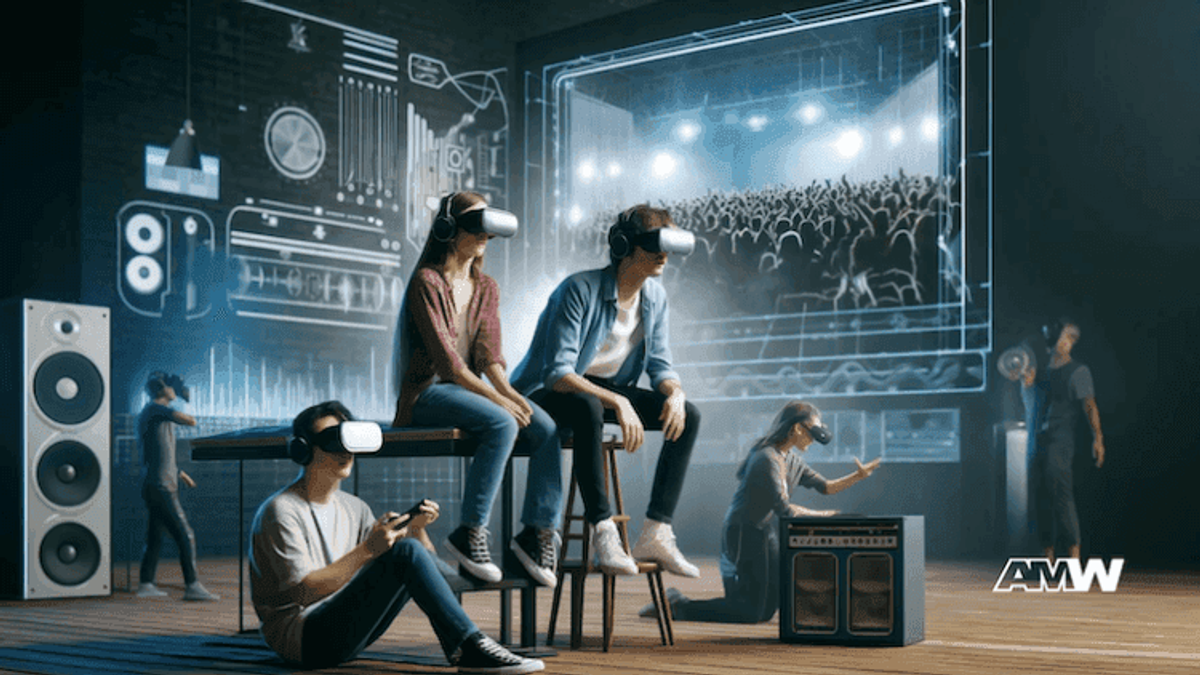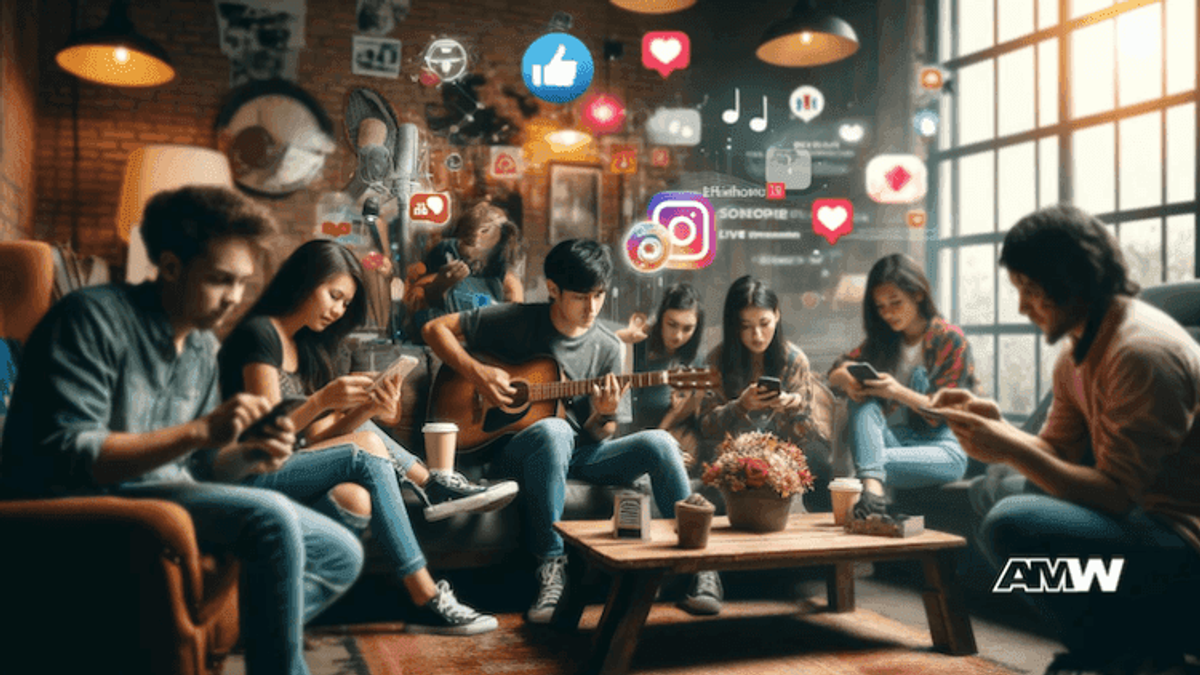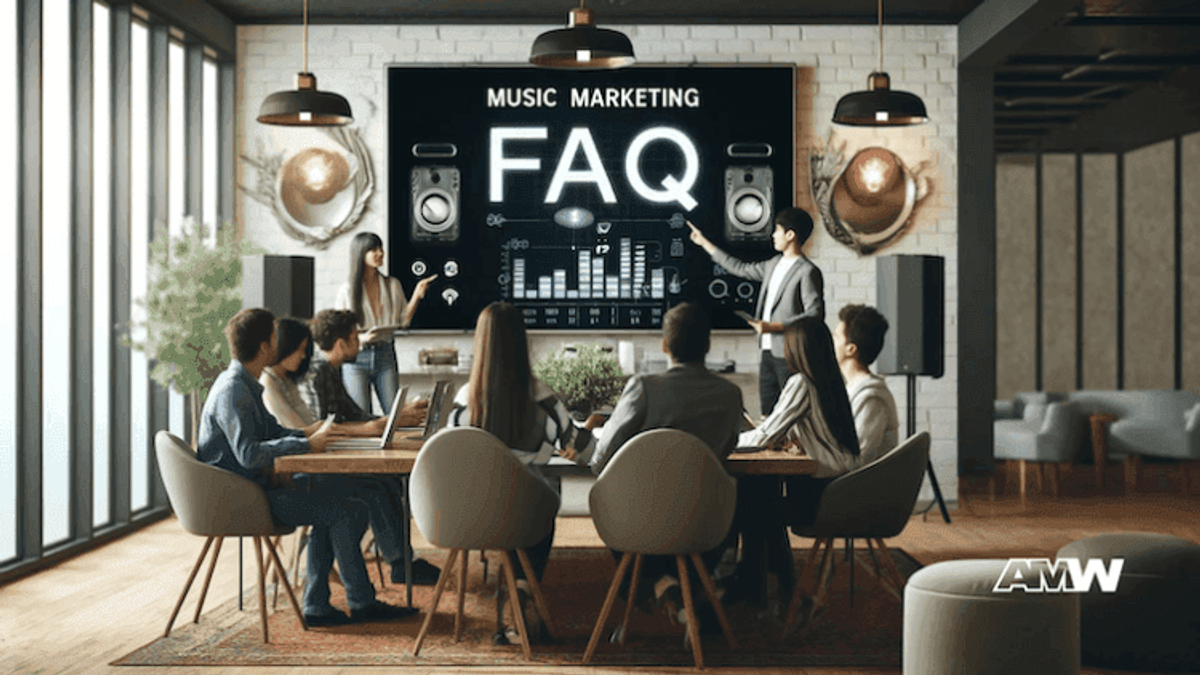Innovative Strategies for Music Marketing in 2025

The music industry in 2025 is a dynamic and ever-evolving landscape. As digital technologies continue to advance and consumer behaviors shift, the importance of innovative marketing strategies has never been more critical. With intense competition among artists and the rise of new platforms, music marketers must stay ahead of the curve and embrace novel approaches to reach and engage audiences effectively. This blog post explores several cutting-edge strategies that are shaping the future of music marketing.
Quick Summary
The music industry in 2025 is rapidly evolving, driven by digital technologies and shifting consumer behaviors. Artists leverage AI for personalized marketing and precise audience targeting, while AR and VR offer immersive fan experiences. Social media platforms like TikTok and Instagram play crucial roles through influencer partnerships and engaging content. Additionally, a focus on sustainability and ethical marketing practices is increasing, as artists aim to expand their global reach through
Leveraging AI and Machine Learning
Artificial Intelligence and machine learning are transforming music marketing by providing unprecedented opportunities for personalization and precision. These technologies allow marketers to analyze vast amounts of data and accurately predict audience preferences.
Personalized Marketing Campaigns and Predictive Analytics
AI enables personalized marketing campaigns that cater to individual listener preferences. AI can create tailored marketing messages that resonate deeply with specific audience segments by analyzing listening habits, demographic information, and social media activity. Predictive analytics can forecast trends and listener behavior, helping marketers anticipate and respond proactively to market changes.
AI-Powered Music Recommendation Engines
AI-driven recommendation engines, such as those used by streaming services like Spotify and Apple Music, play a crucial role in music discovery. These engines analyze user data to suggest new artists and tracks, increasing the visibility of emerging musicians and driving engagement. By integrating AI into marketing strategies, artists and labels can enhance their promotional efforts and ensure their music reaches the right ears at the right time.
Embracing Augmented Reality and Virtual Reality

Augmented Reality and Virtual Reality revolutionize how fans experience music. These immersive technologies offer new avenues for fan engagement and innovative marketing campaigns.
Virtual Concerts, Fan Experiences, and AR-Enhanced Album Releases Virtual concerts have become increasingly popular, allowing fans to experience live performances from their homes. AR elements, such as interactive visuals and augmented stage effects, can enhance these events, creating a unique and memorable experience. Additionally, AR can be used in album releases, where fans can interact with album art and merchandise through their smartphones, adding an extra layer of engagement.
Utilizing Social Media Platforms Effectively

Social media remains a powerful tool for music marketing. Platforms continually evolve to offer new features and ways to connect with fans, and understanding these platforms is crucial for success.
Current Trends in Social Media Usage
Social media such as TikTok, Instagram, and YouTube are at the forefront of music marketing. TikTok, in particular, has become a launchpad for viral hits with its short-form video format and algorithm-driven content discovery. Instagram remains a vital platform for visual content and fan engagement, while YouTube remains essential for music videos and live streaming.
Influencer Partnerships, User-Generated Content, and Viral Challenges Collaborating with influencers who have a strong following in the music space can amplify an artist's reach. User-generated content, where fans create videos or posts featuring an artist's music, can lead to organic growth and engagement. Viral challenges, often initiated on platforms like TikTok, can drive massive exposure and create a sense of community among fans.
Platform-Specific Strategies for TikTok, Instagram, and YouTube
Each social platform requires a tailored approach. On TikTok, short, catchy clips and engaging challenges are key. Instagram thrives on visually appealing content, behind-the-scenes glimpses, and interactive stories. YouTube is ideal for longer-form content, such as music videos, live performances, and vlogs. By understanding each platform, marketers can optimize their strategies to maximize impact.
Interactive and Immersive Content

In an era of short attention spans, interactive and immersive content can captivate audiences and create lasting impressions.
Creating Interactive Music Videos and Experiences
Interactive music videos allow fans to engage with the content in new ways, such as choosing different storylines or interacting with visual elements. These experiences can make the music more memorable and encourage repeat viewings.
The use of 360-degree videos, live streaming, behind-the-scenes content
360-degree videos offer an immersive experience, allowing fans to feel part of the action. Live streaming provides real-time interaction between artists and fans, fostering a sense of community. Experience an exclusive look behind the scenes to uncover the artist's world, forging a stronger connection and cultivating unwavering loyalty.
Storytelling Through Multimedia
Effective storytelling can enhance the emotional impact of music. By combining audio, video, and interactive elements, artists can create rich, multi-layered narratives that resonate with their audience. This multimedia approach can differentiate artists in a crowded market and enhance their brand.
Data-Driven Decision Making

Data is a powerful tool in music marketing, giving insights that can drive strategic decisions and optimize campaigns.
The Importance of Data in Music Marketing
Data helps marketers understand audience behavior, preferences, and trends. By analyzing data from streaming services, social media, and other sources, marketers can tailor their strategies to meet their audience's needs better.
Tools for Data Collection and Analysis
Various tools, including analytics platforms, social media insights, and CRM systems, are available for data collection and analysis. These tools help marketers track key metrics, such as engagement rates, demographic information, and listening habits.
Interpreting Data to Refine Marketing Strategies
Interpreting data is crucial for refining marketing strategies. By understanding what works, marketers can adjust their tactics, allocate resources more effectively, and improve the overall effectiveness of their campaigns. Data-driven decision-making ensures that marketing efforts align with audience needs and market trends.
Sustainability and Ethical Marketing Practices

Due to growing awareness of environmental and ethical issues, sustainability and ethical marketing practices are increasingly important in the music industry.
Growing Importance of Sustainability in the Music Industry
Customers are more aware of the impact of their choices. The music industry is responding by adopting more sustainable practices, such as reducing plastic in merchandise and using eco-friendly packaging.
Eco-Friendly Merchandise and PackagingArtists and labels are exploring ways to produce merchandise sustainably. This includes using recycled materials, reducing packaging waste, and offering digital rather than physical products.
Ethical Considerations in Marketing Practices Ethical marketing involves being transparent, honest, and socially responsible. This means avoiding manipulative tactics, respecting consumer privacy, and promoting positive social messages. Ethical practices build trust with consumers and enhance an artist's reputation.
Expanding Global Reach

The global nature of the music industry means that reaching international audiences is essential for growth.
Understanding Global Music MarketsDifferent regions have unique musical tastes, cultural nuances, and consumption habits. Understanding these differences is key to successfully entering new markets.
Strategies for Penetrating New Geographical RegionsTo expand globally, artists and labels can collaborate with local influencers, translate content into different languages, and tailor their marketing messages to resonate with local audiences. Leveraging international streaming platforms and participating in global music festivals can help artists gain exposure.
Localization of Content and Marketing MessagesLocalization involves adapting content and marketing messages to suit different regions' preferences and cultural contexts. This can include translating lyrics, customizing visuals, and using culturally relevant themes in marketing campaigns.
Conclusion

The music industry in 2025 is brimming with opportunities for those willing to embrace innovation. By leveraging AI and machine learning, exploring AR and VR, utilizing social media effectively, adopting blockchain technology, creating interactive content, making data-driven decisions, practicing sustainability and ethical marketing, and expanding global reach, artists and marketers can thrive in this competitive landscape. Staying adaptable and open to new technologies will be key to success in music marketing.
FAQ

- What is the role of AI in music marketing?AI helps personalize marketing campaigns, predict audience preferences, and enhance recommendation engines, leading to more effective and targeted marketing efforts.
- AI helps personalize marketing campaigns, predict audience preferences, and enhance recommendation engines, leading to more effective and targeted marketing efforts.
- How can AR and VR benefit music marketing?AR and VR can create immersive fan experiences, such as virtual concerts and interactive album releases, enhancing fan engagement and loyalty.
- AR and VR can create immersive fan experiences, such as virtual concerts and interactive album releases, enhancing fan engagement and loyalty.
- Which social media platforms are most effective for music marketing?Platforms like TikTok, Instagram, and YouTube are highly effective because of their large user bases and features that facilitate music discovery and engagement.
- Platforms like TikTok, Instagram, and YouTube are highly effective because of their large user bases and features that facilitate music discovery and engagement.
- How does blockchain technology impact music rights and distribution?Blockchain enables decentralized distribution, transparent rights management, and secure transactions, benefiting artists and consumers by ensuring fair compensation and reducing piracy.
- Blockchain enables decentralized distribution, transparent rights management, and secure transactions, benefiting artists and consumers by ensuring fair compensation and reducing piracy.
- Why is data important in music marketing?Data helps marketers understand audience behavior and preferences, enabling them to improve their campaigns for maximum impact.
- Data helps marketers understand audience behavior and preferences, enabling them to improve their campaigns for maximum impact.
- What are some sustainable marketing practices in the music industry?Examples include eco-friendly merchandise, digital rather than physical releases, and marketing campaigns highlighting environmental and ethical issues.
- Examples include eco-friendly merchandise, digital rather than physical releases, and marketing campaigns highlighting environmental and ethical issues.
- How can artists expand their reach globally?Artists can expand their reach by understanding and adapting to different cultural markets, localizing their content, and collaborating with international artists to tap into new fan bases.
- Artists can expand their reach by understanding and adapting to different cultural markets, localizing their content, and collaborating with international artists to tap into new fan bases.
Albert is a content writer at AMW.